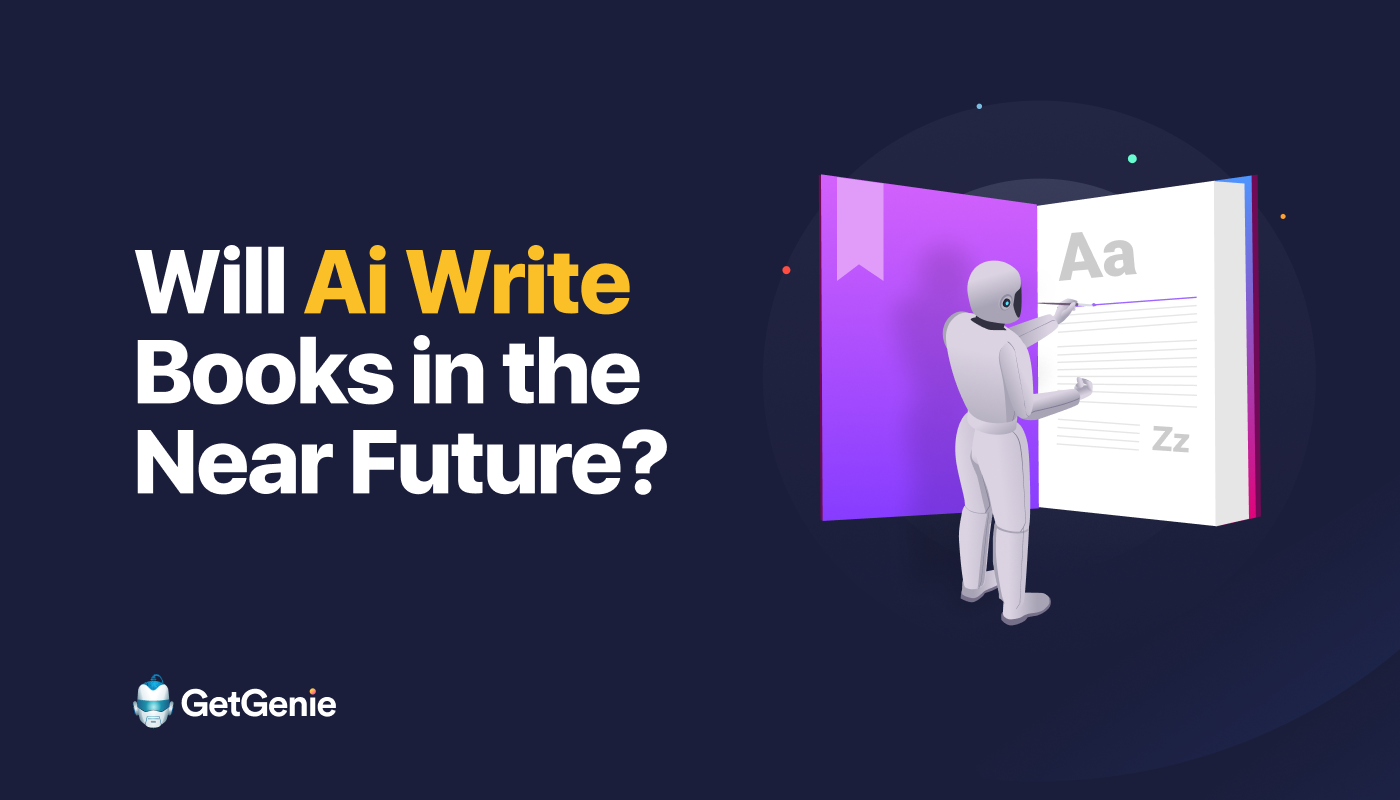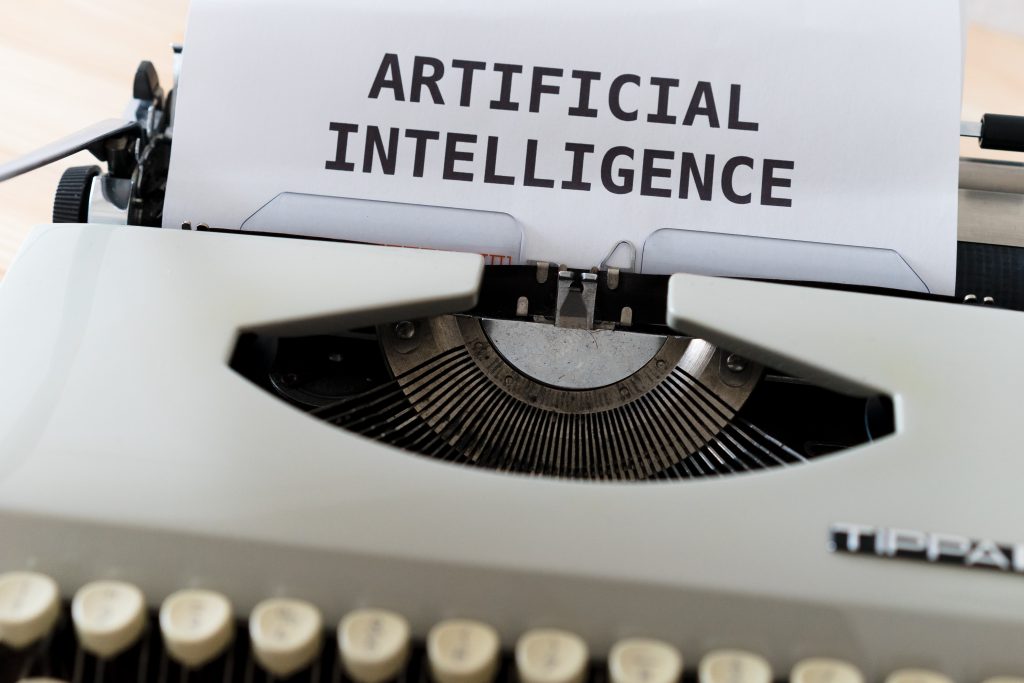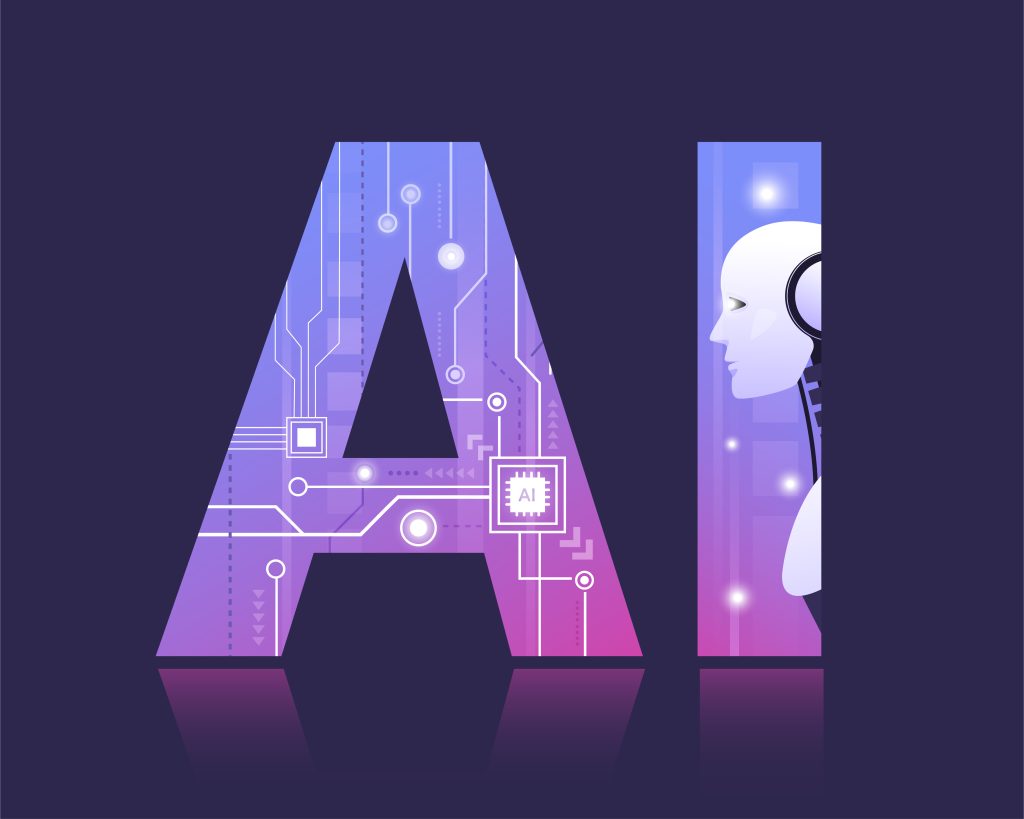Will AI Write Books in The Near Future?

As AI technology continues to advance, it’s natural to wonder if machines will eventually be able to create compelling stories and characters that rival those crafted by human authors. In short, will AI write books in the coming days?
In this article, we’ll try to draft an overall picture of the current AI in book writing, and how you can use the AI book writer. And, is there a possible reality in the near future, where AI writes a book entirely?
Let’s find the answers…
Progress of AI in literature writing
Artificial intelligence (AI) has made significant progress in the field of literature writing in recent years. AI-generated literature is still in its early stages. However, researchers and developers are making strides in developing algorithms and models so that AI can get close to generating human-like text in terms of style, tone, and structure in the coming days.
AI has already shown promise in generating short stories and poetry. For example, OpenAI’s GPT-3 (Generative Pre-trained Transformer 3) language model has been used to generate short stories, poems, and even entire novels.
In fact, according to ebook statistics reported by Reuters on February 2023, over 200 books have listed ChatGPT as an author or co-author on Amazon’s e-books platform.
Another area where AI has shown promise is in language translation. With the development of neural machine translation models, AI has become increasingly adept at translating text from one language to another. This could open up new opportunities for cross-cultural literary collaboration. You can write content in multiple languages with AI and reach a broader audience.
However, at present, AI is used as an assistance to human writers. AI models like GPT-3 have been trained on a vast amount of text data. Therefore, they can generate text based on different contexts and situations, as well as gather information and generate ideas. But it is yet to meet the same level as human writing in terms of creativity.
Why should you use AI when writing a book?
If you are asking, “Can AI help me write a book?” The answer is “Yes”. Technically, the use of AI has been cast down, but you don’t have to isolate yourself from using AI. It’s just that you have to properly utilize the purpose of AI.
The use of AI in writing a book gives you several benefits:
- Speed and Efficiency: AI can generate thousands of words in minutes. This would help the authors to have fresh ideas and meet deadlines.
- Idea Generation: AI eliminates writer’s block. It suggests plot plot twist or write an entire chapter based on prompts or commands.
- Cost-Effectiveness: AI helps reduce the required time and financial investments to produce a book.
- Personalization: AI allows the authors to a personalized content tailored to readers’ interests, reading level, or mood through prompts.
Role of AI in story writing today: How to write a book with AI
Though AI hasn’t reached the capacity to fully replace the creativity and originality of human authors, it can still be a useful tool in literature writing. AI-based tools can assist writers in various ways, such as generating ideas, suggesting plot points, creating characters, and even helping with editing and proofreading.
Moreover, AI tools can offer tailored suggestions based on the author’s unique writing style. For instance, generative AI can provide customized prompts or ideas that align with their tone, genre, or narrative approach.
Here are the following areas where AI is a very effective assistant:
Do the initial research with AI
You can use AI tools to accelerate the research process on a topic. Most of the standard AI language models are fed with millions of data. Therefore, they can generate the best topic ideas for a book by identifying trends and patterns in the market.
Here are some steps you can take to conduct initial research for your book using AI:
- Generate Ideas: Natural Language Processing (NLP) algorithms can analyze millions of books, articles, and other written materials to generate various topic ideas.
- Identify your topic: Using predictive modeling, AI tools can identify the most popular topics within a particular genre or subgenre. This will help narrow your search and focus on the specific areas you want to explore. For example, advanced AI content and SEO tools like GetGenie AI can help you generate related topic ideas for your book.
- Gather data: Once you have identified your research question or topic, the next step is to gather data. AI-powered tools can help you automate this process by crawling the web, extracting relevant data, and organizing it in a structured format.
Use AI to draft the chapters
Drafting the chapter outline is one of the major parts of writing. It’s basically the skeleton of the book. These are the steps to draft an outline for the books:
- Identify genre
- Analyze the plot
- Characters building
- Constructing the timeline
Now, you can consider getting help from AI for drafting the chapters. Algorithms of artificial intelligence can analyze a particular genre, such as romance or science fiction, and identify common plot points, and character traits.
This can help writers create an outline that adheres to the genre’s expectations while also incorporating their own unique ideas.
Save time by generating text with AI
Typing takes more time than we assume. It’s not about typing the words. You have to check the grammar, spelling, and typos. Moreover, the struggle to find the proper word is a massive problem at times.
This is where AI book writers can make things easy. Not only do these tools help with grammar and spelling correction, but they also help to overcome writer’s block. As a writer, you will enter the prompt of what kind of content you want and the AI will generate content based on the prompts you input.
Writing books using AI can save time and increase efficiency in your writing process, allowing you to focus on other creative thinking and strategizing.

Edit and Proofread content for precise output
However, it’s important to remember that the quality of AI-generated text is limited by the quality and quantity of the data it is trained on. So, it can be inconsistent or convey wrong information at times. Besides, input from human writers will enhance the quality of content.
Therefore, proofreading the content and editing is necessary. So, when you write a book using AI, rewriting may be required to make the content flow better.
Overall, AI writing tools can help to become a better writer and minimize workload with the right kind of utilization and assistance.
Will AI write a book like human writer?
Currently, AI is used as an assistant to human authors when it comes to writing books. Due to many limitations, AI-written books are not reliable to publish without human supervision and editorial inputs.
But the question that arises is, can AI write a book on its own?
As of today, AI-generated books tend to rely heavily on data input and statistical analysis to generate text. Therefore, AI-generated writing is not yet at the level of human writing in terms of creativity, originality, and the ability to convey complex emotions and experiences. While AI can generate text that appears to be written by a human, it lacks the depth and nuance that come from human creativity, experience, and emotion.
However, it is clear that AI has the potential to assist human writers to write compelling and engaging literature.
At the moment, AI can help writers to write better. As we pointed out earlier, artificial intelligence-based tools can help in planning, drafting chapter outlines, and generating text based on human input.
The rest depends on future development. Some experts are still optimistic about the development of AI that writes stories with human-level creativity and critical thinking.
Especially, the development of Artificial General Intelligence (AGI) can bring dramatic changes!
AGI is often considered to be the next step in the evolution of AI. So far it is a concept, that can perform any intellectual task that a human being can.
Unlike narrow or specific AI, which is designed for a particular purpose, AGI is intended to be capable of performing any cognitive task that a human can, such as reasoning, problem-solving, perception, and learning.
One potential impact of AGI could be the creation of entirely new genres or forms of literature. For example, an AGI could create entirely new stories or even new forms of storytelling that have not been seen before.
As a matter of fact, the progress of AI in literature writing is still ongoing. Therefore, it is tough to answer at this moment if AI will write books in the near future or not. it remains to be seen what kind of impact it will have on the field of book writing and literature in the long run.
Drawbacks of AI-written content
Is writing books with AI like human-written books? This remains a question to be answered in the future. However, if it is to write books that sound just like humans, there are a bunch of challenges that need to be dealt with.
In recent times, many AI writing tools have been introduced. By using the existing AI tools, we have faced some issues. From that, we thought the following drawbacks should be taken into consideration.
Lack of personal touch: The difference between literature and other forms of write-ups is the personal touch of emotions and experience. Currently, AI story-writing tools don’t have emotional intelligence. They lack the ability to understand and convey emotions effectively.
Inability to adapt to new situations: AI-generated writing is often limited by the quality and quantity of the data it is trained on. This means they may not be able to adapt to new situations or understand the latest trends.
Ethical concerns: In the future, it’s possible that AGI systems could be used to generate literature that competes with human-written works. This could lead to questions about the value and authenticity of literature. However, it is still a conceptual idea and far from implementation.
Concern about the quality: This is more of an issue depending on the users. As the writing process still needs a human touch, the quality of the book depends on the user itself. When someone with a lack of knowledge and expertise uses these tools, they can come up with poor-quality AI-written books with wrong information and perceptions.
Moreover, the quality of the book still depends on the writer’s ability to craft a compelling story and create memorable characters. Therefore, it is crucial to use AI as a tool to assist in the writing process rather than rely solely on AI for content.
Conclusion
Definitely, you can use AI to write a book. However, it’s important to remember to supplement the AI-written content with the human effort to create a human-like book. Don’t just put words on a page, understand the narrative structure, character development, pacing, and other elements of story telling.
Ultimately, though, the best approach is to use AI as a supplement to your own thinking and creativity, rather than relying on it to do the heavy lifting. By combining the strengths of human and machine intelligence, you can create a book that is truly unique and compelling.
So, never think that AI is your rival. It will never be your rival nor replace you. In fact, AI is your best ally.



